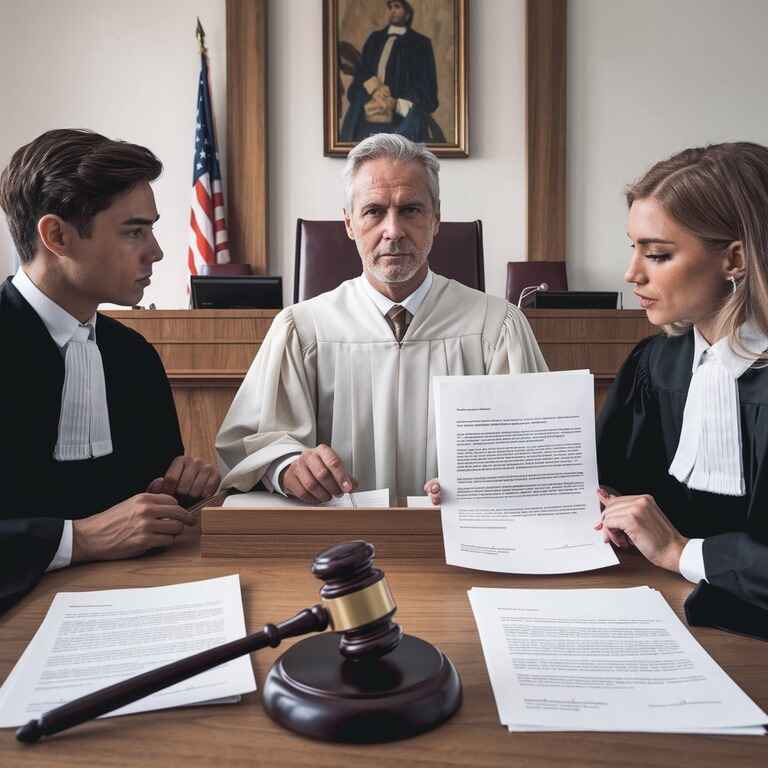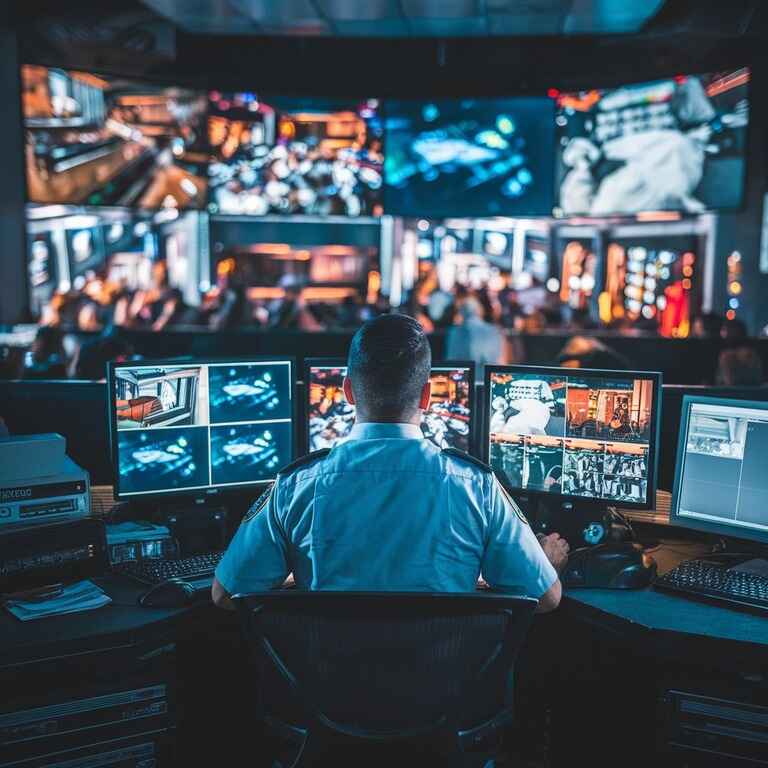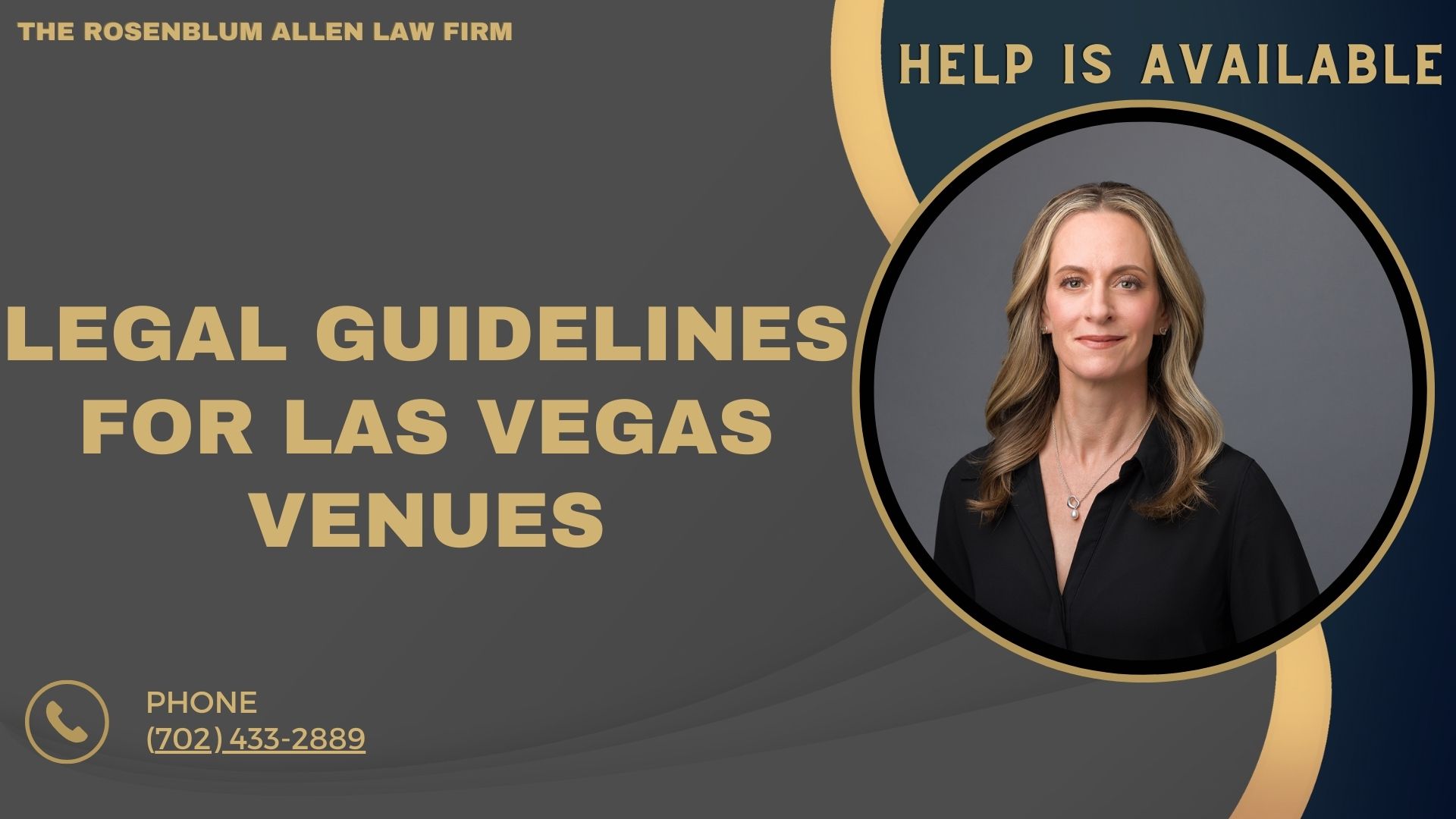Nightclubs are bustling venues where entertainment and socialization thrive. With large crowds and often heightened emotions, security is crucial in ensuring safety and maintaining a peaceful atmosphere. Nightclub security personnel are responsible for various tasks, including crowd control, monitoring behavior, and responding to incidents. The nightclub industry is a significant part of the nightlife scene, and security is vital to its success.
Nightclub owners and operators must also consider the legal obligations and liabilities tied to security personnel’s actions. Understanding legal requirements is essential for ensuring smooth operations and avoiding costly legal consequences, from maintaining a safe environment to preventing violent incidents.

 Legal Framework
Legal Framework
The legal framework governing nightclub security typically involves a combination of local, state, and federal laws. Regulations can vary from jurisdiction to jurisdiction, and nightclub owners must diligently ensure their security practices comply with all relevant laws. Some key areas of legal concern include:
- Licensing and Certification: Security staff must be appropriately licensed and trained according to state or local regulations.
- Liability Laws: Establishing clear policies for using force, emergency responses, and patron interactions can help reduce legal risks.
- Alcohol Regulations: Nightclubs that serve alcohol must adhere to strict regulations related to alcohol service, particularly when it comes to over-serving patrons or allowing intoxicated individuals to engage in violent behavior.
Understanding these legal frameworks helps nightclub owners mitigate risks and provides a clear roadmap for training security personnel and establishing procedures.
Security Requirements
Staff Licensing
Security personnel must be appropriately licensed to work in nightclubs. Licensing requirements vary by state, and specific certifications are necessary to ensure that security staff is equipped to handle the high-pressure situations typical in a nightclub environment. Licensing often involves background checks, completion of specific training programs, and adherence to industry standards.
Standard Licensing Requirements may include:
- State-level security certifications
- Completion of training programs on conflict resolution, crowd control, and emergency response
- Background checks to ensure security staff has no criminal history
Failure to properly license security staff can lead to fines, legal claims, or even the revocation of business licenses.
Training Requirements
Security training is essential to ensuring personnel can effectively handle the challenges of a nightclub environment. Practical training should cover various scenarios, including crowd control, de-escalation techniques, and handling confrontations. Security staff should be trained to recognize signs of potential trouble, manage disruptive patrons, and act swiftly during emergencies.
Key Aspects of Security Training include:
- De-escalation techniques to prevent violent confrontations
- Crowd management to maintain order in large groups
- Handling altercations involving intoxicated patrons
- Emergency response protocols in case of fire, medical emergencies, or active shooter situations
Regular training is essential to keeping security personnel well-prepared for any situation that may arise in a nightclub.
Equipment Standards
In addition to training, nightclub security teams should be equipped with appropriate tools to perform their duties safely and effectively. Equipment standards help ensure that security staff can handle potential threats while adhering to legal guidelines for using force.
Standard Security Equipment might include:
- Communication devices such as radios or headsets for coordination
- Metal detectors to screen for weapons
- Flashlights for visibility in dark areas
- Cameras for surveillance and monitoring behavior
Having the right equipment is essential for both safety and legal compliance. Additionally, regular checks and maintenance of equipment ensure that security staff are never unprepared.

Liability Issues
Use of Force
One of the most critical aspects of nightclub security is the use of force. Security staff often face aggressive or disruptive patrons, and knowing when and how to use force is essential. However, excessive or inappropriate use of force can lead to lawsuits, public backlash, and criminal charges.
Guidelines for the Use of Force:
- Proportional Response: Security should only use as much force as necessary to subdue a threat. If a patron is verbally aggressive, verbal de-escalation should be prioritized over physical confrontation.
- Non-lethal Methods: When possible, non-lethal methods such as restraints or using pepper spray (if legally permitted) should be the first choice.
- Clear Documentation: Every instance where force is used should be thoroughly documented. This documentation can protect security staff and the nightclub in case of a legal claim.
To avoid liability, security staff should be well-trained in recognizing when to de-escalate a situation and when to call law enforcement for assistance.
Patron Screening
Screening patrons before entry helps ensure safety and prevent incidents inside the club. Nightclubs typically use a combination of physical checks, ID verification, and behavioral observation to assess whether an individual poses a risk. Failing to screen patrons properly can result in dangerous situations and legal consequences.
Common Screening Practices:
- ID Checks: Ensuring that patrons are of legal drinking age is not only a matter of Compliance with liquor laws but also helps prevent intoxicated individuals from entering.
- Bag Checks can prevent patrons from bringing in prohibited items such as weapons or drugs.
- Behavioral Screening: Observing how patrons behave in line or at the entrance can help security identify individuals who may be intoxicated or disruptive before they even enter the club.
By carefully screening patrons, nightclub security can reduce the chances of incidents occurring inside the venue and limit liability.
Emergency Response
No one can predict when an emergency will happen, but being prepared is critical. Whether it’s a medical emergency, a fire, or an active shooter, how security reacts can make all the difference. If security fails to act quickly or appropriately in an emergency, the nightclub could face legal consequences for negligence.
Essential Emergency Response Protocols:
- Evacuation Plans: Nightclubs must have clear evacuation routes and protocols. Security should be trained to direct patrons to safety without causing panic.
- Medical Emergencies: Security should be trained in basic first aid and CPR. In more severe cases, security must immediately contact medical professionals for assistance.
- Active Shooter Drills: While rare, active shooter scenarios must be planned for. Regular drills should ensure all staff know their roles during such a crisis.
Prompt and effective emergency response can help mitigate the risks and liability associated with emergencies in a nightclub setting.
Alcohol Service
Serving alcohol in a nightclub comes with specific legal and liability concerns. Over-serving intoxicated patrons can lead to dangerous situations, and failure to comply with alcohol service laws can result in penalties or lawsuits.
Alcohol Service Guidelines:
- Training for Bartenders: Staff should be trained to recognize signs of intoxication and stop serving alcohol to anyone who appears overly intoxicated.
- Cut-off Policies: Some nightclubs implement policies requiring bartenders to stop serving alcohol after a certain hour or when a patron reaches a certain level of intoxication.
- Monitoring Behavior: Security should monitor the behavior of intoxicated patrons to ensure they aren’t becoming disruptive or violent.
By strictly adhering to alcohol service laws and policies, nightclubs can reduce legal exposure and ensure a safer environment for all patrons.

Risk Management
Documentation
One of the best ways to protect a nightclub from legal claims is through thorough documentation. Keeping accurate and detailed records, from incident reports to daily logs, helps create a paper trail supporting the club’s case if an incident leads to a legal dispute.
Types of Important Documentation:
- Incident Reports: Every altercation or unusual event should be documented in detail, including the time, individuals involved, actions taken by security, and any witnesses.
- Daily Security Logs: These logs should include basic information such as the number of staff on duty, notable incidents, and security patrols.
- Surveillance Footage: Video footage can serve as crucial evidence in case of disputes or legal claims.
Proper documentation can demonstrate that the nightclub took reasonable steps to ensure safety and comply with the law.
Insurance Coverage
Insurance is another vital component of risk management. While it can’t prevent incidents, proper insurance coverage can help protect the nightclub in case of legal claims, property damage, or bodily injury.
Types of Insurance to Consider:
- General Liability Insurance: Covers injuries and accidents that occur on the premises.
- Liquor Liability Insurance: This protects against alcohol-related incidents.
- Workers’ Compensation Insurance: Covers injuries to security staff or other employees while on the job.
The right insurance coverage can provide peace of mind and financial protection in case of legal claims or accidents.
Training Protocols
Effective risk management goes hand in hand with proper training. Security staff should be continually trained not just in how to handle specific situations but also in how to avoid them. Well-trained security personnel are less likely to make mistakes that could lead to legal issues.
Key Areas for Security Training:
- Conflict Resolution to prevent physical altercations
- Legal Compliance regarding the use of force and patron rights
- Emergency Response protocols for various types of crises
- Behavioral Detection to identify signs of trouble before it escalates
When security staff are well-trained, the risk of incidents—and thus legal liability—decreases significantly.

Common Legal Claims
Excessive Force
Excessive force claims occur when security personnel use more physical force than necessary to handle a situation. These claims are common in nightclubs, where heightened emotions and alcohol consumption can lead to aggressive behavior. If a patron believes that security uses unreasonable force, they might file a lawsuit.
Examples of Excessive Force:
- Unnecessary physical restraint when a verbal warning would suffice.
- Violent takedowns or physical strikes that escalate the situation.
- Use weapons (such as tasers or pepper spray) when the threat doesn’t justify it.
Excessive force claims can lead to reputational damage, legal fees, and criminal charges. Security staff should always be trained to use the least force necessary to resolve a situation.
Negligent Security
Negligent security claims happen when a nightclub fails to provide adequate security measures, leading to incidents such as assaults, robberies, or injuries. If a nightclub doesn’t have enough trained security personnel or staff inadequately trained to handle dangerous situations, the business could be held liable.
Common Examples of Negligent Security:
- Lack of crowd control during busy events, leading to fights or injuries.
- Inadequate surveillance results in theft or assault that goes unnoticed.
- Failure to properly screen patrons, allowing dangerous individuals into the venue.
Preventing negligent security claims requires maintaining appropriate staffing levels, ensuring proper training, and investing in security infrastructure, such as cameras and metal detectors.
Discrimination
Discrimination claims arise when security staff unfairly target or treat individuals differently based on their race, gender, sexual orientation, or other protected characteristics. Discriminatory actions can result in lawsuits and significant reputational harm.
Examples of Discrimination in Security:
- Refusing entry to individuals based on appearance, ethnicity, or background without a valid reason.
- Disproportionately targeting specific groups for searches or questioning based on biases.
- Verbal harassment or inappropriate comments directed at patrons of particular demographics.
Security staff should be trained in diversity, equality, and non-biased practices to avoid discrimination claims. Clear policies on non-discrimination and regular sensitivity training are also essential.

Best Practices
Prevention Strategies
Preventing incidents before they happen is the most effective way to protect patrons and the nightclub. Proactive strategies help reduce the likelihood of problems and minimize the risk of legal issues.
Effective Prevention Strategies:
- Well-defined entry policies: Use clear signage and policies about dress codes, alcohol consumption, and prohibited behavior to set expectations.
- Visible security presence: Having uniformed security staff around the venue can deter potential troublemakers.
- Crowd management techniques: Employing crowd control methods, such as managing the flow of people during peak hours, reduces the chances of accidents or altercations.
By preventing issues from escalating, nightclub owners can create a safer environment and reduce their exposure to legal claims.
Documentation Requirements
As mentioned, documentation is essential for risk management and legal defense. By keeping accurate and up-to-date records, nightclubs can prove that they took appropriate measures to prevent incidents and handled situations correctly when they arose.
Types of Documentation to Maintain:
- Incident Reports: Document every incident involving a security response, detailing what occurred, who was involved, and the steps taken.
- Security Logs: Record the details of security personnel shifts, duties performed, and any observations or actions.
- Surveillance Footage: Ensure that video footage is stored securely and accessible for review or legal purposes.
Proper documentation can help defend against claims of negligence or improper conduct by providing a clear and factual account of events.
Legal Compliance
Finally, ensuring legal compliance is at the core of best practices in nightclub security. By staying current on local laws, industry standards, and best practices, nightclub owners and security personnel can avoid legal trouble and run successful businesses.
Key Areas for Legal Compliance:
- Licensing requirements for both the nightclub and security staff.
- Alcohol laws, including ensuring that patrons are not over-served or served alcohol when they’re visibly intoxicated.
- Health and safety codes, ensuring that security and emergency protocols align with local regulations.
- Employee rights and labor laws ensure that security personnel are treated fairly and lawfully.
Adhering to the law minimizes the risk of legal action and ensures that the nightclub operates smoothly and responsibly.

Breaking It All Down
Nightclub security is more than just a precaution—it’s vital to ensuring a safe, enjoyable experience for patrons while minimizing legal risks for the business. From understanding the legal framework to implementing effective risk management strategies, nightclub owners must be proactive and comprehensive in their approach to security.
By addressing staff licensing, training requirements, and using proper equipment, nightclubs can establish a strong foundation of security that helps prevent incidents and protects the business from legal liabilities. Understanding and addressing excessive force, negligent security, and discrimination cannot be overstated.
Furthermore, embracing best practices, including clear prevention strategies, thorough documentation, and ensuring legal compliance, ensures that the nightclub remains safe and legally sound. Through careful planning and consistent attention to detail, nightclub owners can effectively balance the safety of their patrons with the legal and financial well-being of their business.
Nightclub security doesn’t have to be a daunting responsibility, but it does require attention to detail and an ongoing commitment to safety and legal compliance. Following the guidelines and best practices discussed in this guide can reduce the risk of legal issues and create a safer, more welcoming atmosphere for everyone.

Frequently Asked Questions
What is the primary role of nightclub security?
Nightclub security ensures the safety of patrons and staff by preventing and managing disruptions, handling emergencies, controlling crowd behavior, and enforcing venue policies.
Do security staff need specific licenses to work in nightclubs?
Yes, depending on local laws, security staff are typically required to obtain licenses. This often includes background checks, completion of a security training program, and certification in specific security practices.
What training should nightclub security undergo?
Security personnel should receive training in conflict resolution, crowd control, emergency response procedures, use of force, and legal rights. Ongoing training is essential to keep security teams prepared for various situations.
Can a nightclub be held liable for incidents involving its security staff?
Yes, nightclubs can be liable for incidents if security staff are inadequately trained, use excessive force, or fail to address safety issues adequately. Proper documentation, training, and compliance with legal requirements can minimize liability.
What are common legal claims against nightclub security?
Some common legal claims include excessive use of force, negligent security practices, and discrimination. Security personnel must act in a way consistent with the law and the nightclub’s policies to avoid these claims.
How can a nightclub reduce the risk of legal claims related to security?
Nightclubs can reduce risk by ensuring security staff are appropriately licensed and trained, using appropriate security equipment, adhering to alcohol service laws, and maintaining clear documentation of incidents. Additionally, adopting non-discriminatory policies and prevention strategies can minimize legal exposure.
What types of insurance should a nightclub have for security-related incidents?
Nightclubs should have general liability, liquor, and workers’ compensation insurance. These types of insurance cover a range of issues, from accidents and injuries to alcohol-related incidents and staff injuries.
What are the best practices for preventing legal issues with nightclub security?
Best practices include implementing clear prevention strategies, ensuring proper documentation of all incidents, and complying with legal regulations. Training security staff in non-biased practices, de-escalation techniques, and emergency response protocols is also crucial.
Why is documentation necessary for nightclub security?
Documentation records incidents that can protect the nightclub from legal claims. Detailed incident reports, daily security logs, and surveillance footage can serve as evidence in case of a dispute or lawsuit.
How can security staff handle situations without escalating them?
Security staff should be trained in de-escalation techniques, such as using calm and respectful language, maintaining a non-threatening posture, and defusing potential conflicts before they escalate into physical confrontations.

Additional Resources for You from The Rosenblum Allen Law Firm.
At The Rosenblum Allen Law Firm, we provide comprehensive legal services beyond surrogacy. Below are some additional resources that may be helpful, with embedded links for your convenience:
Criminal Defense Attorney: If you are facing criminal charges, our experienced defense team is here to protect your rights and fight for the best possible outcome.
Las Vegas DUI Lawyer: We help individuals accused of DUI offenses navigate the legal process, minimize penalties, and protect their driving privileges.
Domestic Violence Lawyer Las Vegas: If you are dealing with allegations of domestic violence, we offer compassionate representation to help you through these challenging situations.
Drug Possession Lawyer: Whether you’re facing misdemeanor or felony drug charges, we provide aggressive legal defense to safeguard your future.
Sex Crimes Attorney: Our firm offers discreet, skilled representation for those accused of sensitive sex crime cases, ensuring that your rights are protected.
CPS Defense Attorney: If you are facing allegations of child abuse or neglect, we are here to protect your parental rights and guide you through the CPS process.
Misdemeanor Lawyer: For minor offenses, our team helps clients resolve their cases efficiently and minimize long-term consequences.
Las Vegas Warrant Defense Attorney: If you have an active warrant, we can help you address it before it escalates to an arrest.
Las Vegas Probation Violation Attorney: If you’ve been accused of violating probation, we’ll work to defend you and reduce potential penalties.
Theft Crime Defense Lawyer: Whether you’re facing shoplifting or more serious theft charges, our firm is prepared to defend your case.
Kidnapping Lawyers: If you’re dealing with kidnapping charges, we’ll provide strategic legal support tailored to your situation.
Juvenile Defense Lawyers: Our firm is dedicated to protecting the rights of juveniles and helping them navigate the justice system.
Firearms Lawyer Las Vegas: We assist clients accused of firearm-related offenses, ensuring their rights are preserved and their cases are handled effectively.
Let us know how we can help. At The Rosenblum Allen Law Firm, your case is our priority. Feel free to reach out to us for assistance or consultation!

Offsite Resources for You
Here are seven offsite resources related to nightclub security and legal considerations that you might find useful:
National Association of Security Companies (NASCO) – A professional organization that provides resources, guidelines, and standards for the security industry, including nightclub security.
National Safety Council (NSC) – Offers safety-related resources and training programs, including security protocols for businesses like nightclubs.
Security Industry Association (SIA) – Provides valuable information on security technologies, training, and industry standards, including those relevant to nightclub security.
International Association of Security Professionals (IASP) – An organization that offers professional development and networking for those in the security industry, with materials on risk management and legal concerns.
U.S. Small Business Administration (SBA) – Offers helpful guides on risk management and liability insurance for small business owners, including those in the entertainment industry.
U.S. Department of Labor – Occupational Safety and Health Administration (OSHA) – Provides resources on workplace safety, including best practices that can apply to nightclub security staff.
The National Crime Prevention Council (NCPC) – Focuses on crime prevention techniques and resources that nightclub security teams can use to prevent violence and other incidents.
These resources can provide additional insights into security practices, training, and legal considerations for nightclub owners and staff.

A Special Message from Our Lead Attorney, Molly Rosenblum Allen, Esq

Thank you so much for taking the time to explore these valuable resources. They’ve provided useful insights into managing nightclub security and legal considerations. Don’t hesitate to reach out if you have any questions or want to discuss your situation further. My team and I are here to help. Call us at (702) 433-2889 to get the ball rolling on your case.
We look forward to assisting you!
Best regards,
Molly
The Rosenblum Allen Law Firm




